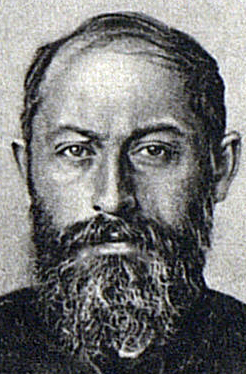|
First Republic Of Georgia
The Democratic Republic of Georgia (DRG; ka, საქართველოს დემოკრატიული რესპუბლიკა ') was the first modern establishment of a republic of Georgia, which existed from May 1918 to February 1921. Recognized by all major European powers of the time, DRG was created in the wake of the Russian Revolution of 1917, which led to the collapse of the Russian Empire and allowed territories formerly under Saint Petersburg's rule to assert independence. In contrast to Bolshevik Russia, DRG was governed by a moderate, multi-party political system led by the Georgian Social Democratic Party (Menshevik). Initially, DRG was a protectorate of the German Empire. However, after the German defeat in World War I, the country was partially occupied by British troops, who were sent there to counter a proposed Bolshevik invasion. The British had to leave in 1920 because of the Treaty of Moscow, in which Russia recognized Georgia's indepen ... [...More Info...] [...Related Items...] OR: [Wikipedia] [Google] [Baidu] |
Georgian Language
Georgian (, , ) is the most widely-spoken Kartvelian language, and serves as the literary language or lingua franca for speakers of related languages. It is the official language of Georgia and the native or primary language of 87.6% of its population. Its speakers today number approximately four million. Classification No claimed genetic links between the Kartvelian languages and any other language family in the world are accepted in mainstream linguistics. Among the Kartvelian languages, Georgian is most closely related to the so-called Zan languages (Megrelian and Laz); glottochronological studies indicate that it split from the latter approximately 2700 years ago. Svan is a more distant relative that split off much earlier, perhaps 4000 years ago. Dialects Standard Georgian is largely based on the Kartlian dialect. [...More Info...] [...Related Items...] OR: [Wikipedia] [Google] [Baidu] |
Laz Language
The Laz language (; ka, ლაზური ენა/ჭანური ენა, tr; tr, Lazca, tr) is a Kartvelian language spoken by the Laz people on the southeastern shore of the Black Sea. In 2007, it was estimated that there were around 20,000 native speakers in Turkey, in a strip of land extending from Melyat to the Georgian border (officially called Lazistan until 1925), and around 1,000 native speakers around Adjara in Georgia. There are also around 1,000 native speakers of Laz in Germany. Laz is not a written language nor a literary language. According to Benninghaus, the Laz themselves have no interest in writing in Laz. Classification Laz is one of the four Kartvelian languages. Along with Mingrelian, it forms the Zan branch of this Kartvelian language family. The two languages are very closely related, to the extent that some linguists refer to Mingrelian and Laz as dialects or regional variants of a single ''Zan language'', a view held officially in the ... [...More Info...] [...Related Items...] OR: [Wikipedia] [Google] [Baidu] |
Georgia (country)
Georgia (, ; ) is a transcontinental country at the intersection of Eastern Europe and Western Asia. It is part of the Caucasus region, bounded by the Black Sea to the west, by Russia to the north and northeast, by Turkey to the southwest, by Armenia to the south, and by Azerbaijan to the southeast. The country covers an area of , and has a population of 3.7 million people. Tbilisi is its capital as well as its largest city, home to roughly a third of the Georgian population. During the classical era, several independent kingdoms became established in what is now Georgia, such as Colchis and Iberia. In the early 4th century, ethnic Georgians officially adopted Christianity, which contributed to the spiritual and political unification of the early Georgian states. In the Middle Ages, the unified Kingdom of Georgia emerged and reached its Golden Age during the reign of King David IV and Queen Tamar in the 12th and early 13th centuries. Thereafter, the kingdom decl ... [...More Info...] [...Related Items...] OR: [Wikipedia] [Google] [Baidu] |
Georgians
The Georgians, or Kartvelians (; ka, ქართველები, tr, ), are a nation and indigenous Caucasian ethnic group native to Georgia and the South Caucasus. Georgian diaspora communities are also present throughout Russia, Turkey, Greece, Iran, Ukraine, United States, and European Union. Georgians arose from Colchian and Iberian civilizations of classical antiquity; Colchis was interconnected with the Hellenic world, whereas Iberia was influenced by the Achaemenid Empire until Alexander the Great conquered it. In the 4th century, the Georgians became one of the first to embrace Christianity and now the majority of Georgians are Orthodox Christians, with most following their national autocephalous Georgian Orthodox Church, although there are small Georgian Catholic and Muslim communities as well as a significant number of irreligious Georgians. Located in the Caucasus, on the continental crossroads of Europe and Asia, the High Middle Ages saw Georgian people form ... [...More Info...] [...Related Items...] OR: [Wikipedia] [Google] [Baidu] |
Georgian Rouble
The maneti ( ka, მანეთი) was the currency of the Democratic Republic of Georgia and the Georgian Soviet Socialist Republic between 1919 and 1923. It replaced the first Transcaucasian rouble at par and was subdivided into 100 kopecks ( ''k’ap’eik’i''). It was replaced by the second Transcaucasian rouble after Georgia became part of the Transcaucasian Socialist Federative Soviet Republic. Only paper money was issued, with the Democratic Republic producing denominations of between 50 kopecks and 5,000 maneti. Except for the 50 kopecks, the reverses of the notes bore the denomination in French () and Russian. In 1922 the GSSR issued denominations between 5,000 and 5 million maneti. Maneti, derived from the Latin ''moneta'' ("coin"), was used as the Georgian name for the Soviet rouble. The modern Georgian currency is the lari. See also * ''For an earlier Georgian currency, see Georgian abazi Abazi ( ka, აბაზი) was a Georgian silver coin, deriving ... [...More Info...] [...Related Items...] OR: [Wikipedia] [Google] [Baidu] |
Independence Day (Georgia)
Independence Day ( ka, დამოუკიდებლობის დღე, tr) is an annual public holiday in Georgia observed on 26 May. It commemorates the 26 May 1918 adoption of the Act of Independence, which established the Democratic Republic of Georgia in the aftermath of the Russian Revolution of 1917. It is the national day of Georgia. Independence Day is associated with military parades, fireworks, concerts, fairs, and political speeches and ceremonies, in addition to various other public and private events celebrating the history and culture of Georgia. Background In the chaotic aftermath of the Russian Revolution of 1917, Georgia, which was annexed by the Russian Empire since the early 19th century, declared itself an independent Democratic Republic on 26 May 1918, after a brief and loose federative union with the fellow South Caucasian countries of Armenia and Azerbaijan. In February–March 1921 the Democratic Republic of Georgia fell to the invading Russi ... [...More Info...] [...Related Items...] OR: [Wikipedia] [Google] [Baidu] |
Government Of The Democratic Republic Of Georgia In Exile
After the Soviet Russian Red Army invaded Georgia and the Bolsheviks conquered the country early in 1921, the Parliament of the Democratic Republic of Georgia (DRG) decided that the Government should go into exile and continue to function as the National Government of Georgia (NGG). History Exile to France After the war with the Soviets was irreversibly lost, the Constituent Assembly of Georgia, managed by Karlo Chkheidze, at its last session in Batumi on 18 March 1921, decided on the exile of the Georgian Social Democratic (Menshevik) Party government, managed by Noe Zhordania. On the same day, the members of the government, several deputies of the Constituent Assembly of Georgia, a few military officers and their families went aboard the ship ''Ernest Renan'' and sailed first to Istanbul, Turkey, and then to France, the government of which granted the Georgian émigrés political asylum. 1924 Uprising preparation Using Georgian state funds, the government bought a ... [...More Info...] [...Related Items...] OR: [Wikipedia] [Google] [Baidu] |
Soviet Occupation Day, Georgia
Soviet Occupation Day ( ka, საბჭოთა ოკუპაციის დღე, ''sabch'ot'a okupats'iis dge'') is a Memorial Day in the country of Georgia. It is observed annually on 25 FebruaryGeorgia declares February 25 Soviet Occupation Day to commemorate the in 1921. The holiday was established in 2010, and its first observance was in 2011. In February 1921, the , following the [...More Info...] [...Related Items...] OR: [Wikipedia] [Google] [Baidu] |
Red Army Invasion Of Georgia
The Red Army invasion of Georgia (15 February17 March 1921), also known as the Soviet–Georgian War or the Soviet invasion of Georgia,Debo, R. (1992). ''Survival and Consolidation: The Foreign Policy of Soviet Russia, 1918-1921'', pp. 182, 361–364. McGill-Queen's Press. was a military campaign by the Russian Red Army aimed at overthrowing the Social-Democratic (Menshevik) government of the Democratic Republic of Georgia (DRG) and installing a Bolshevik regime in the country. The conflict was a result of expansionist policy by the Russians, who aimed to control as much as possible of the lands which had been part of the former Russian EmpireKort, M (2001), ''The Soviet Colossus'', p. 154. M.E. Sharpe, until the turbulent events of the First World War, as well as the revolutionary efforts of mostly Russian-based Georgian Bolsheviks, who did not have sufficient support in their native country to seize power without external intervention. The independence of Georgia had been re ... [...More Info...] [...Related Items...] OR: [Wikipedia] [Google] [Baidu] |
Constituent Assembly Of Georgia
The Constituent Assembly of Georgia ( ka, საქართველოს დამფუძნებელი კრება, ''sak’art’velos damp’udznebeli kreba'') was a national legislature of the Democratic Republic of Georgia which was elected in February 1919 to ratify the Act of Independence of Georgia and enact the Constitution of 1921. The assembly remained active until the Soviet Russian military intervention brought Georgia’s three-year independence to an end in March 1921. Election After the Russian Revolution of 1917, Georgia seceded from Russia first as a part of the Transcaucasian Democratic Federative Republic on April 9, 1918, and then as its own sovereign republic on May 26, 1918, the day when the Georgian National Council anonymously adopted the Act of Independence of Georgia. According to this act, “the Democratic Republic of Georgia equally guarantees to every citizen within her limits political rights irrespective of nationality, creed, ... [...More Info...] [...Related Items...] OR: [Wikipedia] [Google] [Baidu] |
National Council Of Georgia
The National Council of Georgia ( ka, საქართველოს ეროვნული საბჭო, ''sakartvelos erovnuli sabcho'') was the first delegated legislative body formed by Georgia's major political parties and social organizations on November 19, 1917, during the Russian Revolution. The Council presided over the declaration of independence of the Democratic Republic of Georgia on May 26, 1918, and was renamed into the Parliament of Georgia (საქართველოს პარლამენტი, ''sakartvelos parlament'i'') on October 4, 1918. It was succeeded by the Constituent Assembly of Georgia, a legislative body elected through the nationwide general elections on February 14, 1919. Formation The National Council of Georgia (NCG) was elected at the National Congress of Georgia held in the State Treasury Theater in Tiflis (now Tbilisi Opera and Ballet Theatre) from November 19 to 23, 1917, and attended by 329 delegates from Georgia’s all m ... [...More Info...] [...Related Items...] OR: [Wikipedia] [Google] [Baidu] |
Noe Zhordania
Noe Zhordania ( ka, ნოე ჟორდანია /nɔɛ ʒɔrdɑniɑ/; russian: Ной Никола́евич Жорда́ния; born (or ) — January 11, 1953) was a Georgian journalist and Menshevik politician. He played an eminent role in the socialist revolutionary movement in the Russian Empire, and later chaired the government of the Democratic Republic of Georgia from July 24, 1918 until March 18, 1921, when the Bolshevik Russian Red Army invasion of Georgia forced him into exile to France. There Zhordania led the government-in-exile until his death in 1953. Biography Early life and background Zhordania was born on , to a petty landowner family living in the village of Lanchkhuti in Guria, western Georgia, then part of the Kutais Governorate of Imperial Russia.Zhorda ... [...More Info...] [...Related Items...] OR: [Wikipedia] [Google] [Baidu] |
_-_Georgian_language_alphabet.png)

.jpg)




